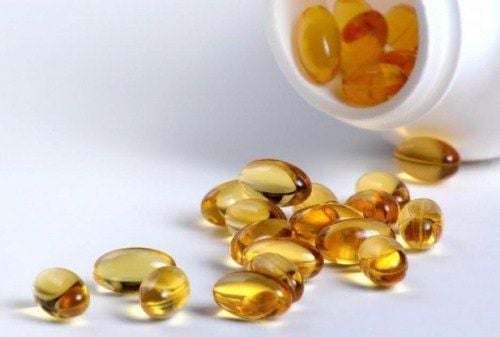This is an automatically translated article.
Fish is a healthy food. Fish nutrition has important nutrients like protein, vitamin D and is an excellent source of omega-3 fatty acids, which are extremely important for the body and brain.
1. Nutrition when eating fish
1.1. Fish contains many important nutrients In fish there are many nutrients that many people are lacking such as: high-quality protein, iodine, various vitamins and minerals. Especially fatty fish (also known as oily fish) such as salmon, sardines, tuna and mackerel, are high in nutrients. Fatty fish is also high in omega-3 fatty acids, which are important for the body and brain function to help reduce the risk of many diseases.
To meet your body's omega-3 needs, you should eat fatty fish at least once or twice a week. If you're a vegetarian, opt for an omega-3 supplement made from microalgae.
1.2. Lowers the risk of heart attack and stroke Heart attack and stroke are the two most common causes of premature death in the world. Fish is considered one of the healthiest foods. Many studies show that people who eat fish regularly have a lower risk of heart attack, stroke and death from heart disease than those who do not regularly eat fish.

Dinh dưỡng trong cá giúp giảm nguy cơ đau tim và đột quỵ
1.3. Fish contains many nutrients important for body growth Omega-3 fatty acids are essential for growth and development. DHA is especially important for brain and eye development. Pregnant and lactating women should regularly eat fish to get enough omega-3s. However, some fish are high in mercury, so pregnant women should only eat low-mercury fish such as salmon, sardines and trout and eat no more than 340 grams per week. Pregnant women should also avoid eating raw and undercooked fish as it may contain microorganisms harmful to the fetus.
1.4. Fish boosts brain health Many studies show that people who eat a lot of fish have a slower rate of mental decline. People who eat fish regularly also have more gray matter in the brain center that controls memory and emotions.
1.5. Fish helps prevent and treat depression Depression causes symptoms such as sadness, decreased energy and loss of interest in life and work. Depression causes serious health problems. Omega-3 fatty acids in fish can help fight depression and significantly increase the effectiveness of antidepressants.

Axit béo omega-3 trong cá giúp ngăn ngừa nguy cơ mắc bệnh trầm cảm
1.6. Fish provide vitamin D Vitamin D acts like a steroid hormone in the body. Fish and fish products are among the best dietary sources of vitamin D. Fatty fish like salmon and herring contain the highest amounts.
1.7. Fish reduces the risk of autoimmune diseases We can develop autoimmune diseases like type 1 diabetes when the immune system attacks and destroys healthy body tissues. Omega-3 intake, fish oil helps prevent the risk of type 1 diabetes in children, as well as autoimmune diseases in adults. Eating fish may also reduce the risk of rheumatoid arthritis and multiple sclerosis.
1. 8. Preventing asthma in children Children who eat a lot of fish will limit the risk of asthma.

Bổ sung cá trong bữa ăn giúp ngăn ngừa nguy cơ mắc hen suyễn ở trẻ
2. Is it good to eat a lot of fish?
This is a question that many people are interested in. No one can deny the nutritional value that fish brings. However, there are many types of fish that can cause brain and nerve damage in adults, it can also affect the development of infants and young children. These are fish with high levels of mercury such as: Imported Swordfish, Shark, Tilefish, especially King Mackerel.
Mackerel is a good source of omega-3s, but king mackerel - which is caught in the Pacific Ocean - is high in mercury. Doctors recommend that young children and women who are pregnant or breastfeeding stay away from king mackerel.
Just like mackerel, different types of tuna have different levels of mercury. For example, canned tuna is a good source of protein, you can eat 3 times a week. However, bluefin tuna, bigeye tuna, you should not eat it more than once a week.
Reference source: healthline.com; webmd.com













